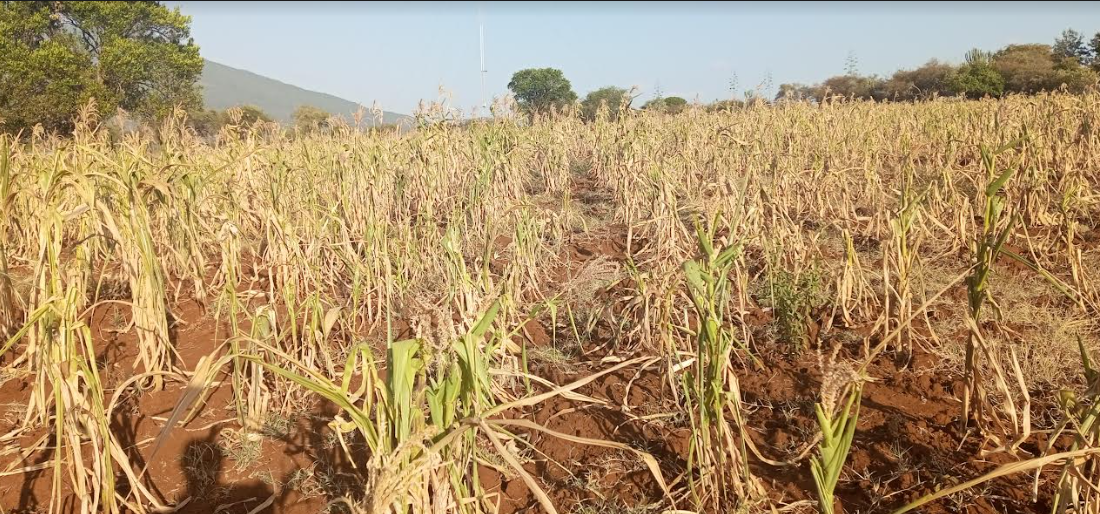Farmers in Kenya's Murang'a County are watching crops like maize, beans, tomatoes, and avocado seedlings wither after rains that started with promise vanished almost overnight.
What's happening?
The short rains between October and December usually give Murang'a farmers their most reliable planting window. This year, those rains arrived, helping planted seeds to sprout, but then they disappeared just two weeks later.
"The crops germinated and sprouted well, but after a few days the rains disappeared and the young plants dried up," farmer Julius Maina said to Kenya News Agency. While some farmers are holding on to hope that the rains will return, they're still looking at wasted money and labor. "We however are hopeful that the rains will return even though it's a huge loss, because I will have to purchase more seeds to re-plant," Maina added.Many farmers in the area rely on rainfall to nourish their crops, as irrigation is too expensive. So for many families, with forecasts still uncertain, replanting feels like a financial gamble that could pile on further ruin.
Why are failing crops concerning?
When crops fail, families don't just lose profit — they lose meals, income, stability, and their sense of security.
In this part of Kenya, and many other regions, agriculture is a way of life — households often rely on their small farms to feed themselves daily. When an entire planting cycle collapses, people face immediate hardship.
Further, the rest of the country is faced with higher grocery prices due to supply shortages. As global temperatures rise and weather grows more unpredictable, events like this are becoming more frequent and more dangerous for the millions who depend on stable growing seasons.
When staple crops fail, everyone feels it, whether through strained household budgets, worsening nutrition, or higher market prices that squeeze everyone, especially those with lower incomes. Similar farming strains are happening all over the world — from reduced crop yields in Hungary to blueberry shortages in Maine.
What's being done about failing crops in Kenya?
Officials have urged farmers to switch to drought-tolerant and short-maturing crops like sorghum, millet, and green grams; however, many of these farmers planted before taking heed of this warning. Now, agricultural extension officers are offering guidance, while many farmers are still holding out hope that the rains will return to salvage the season.
To support resilience in food systems, we can look to solutions like supporting regenerative agriculture, minimizing food waste, and backing policies that help farmers adapt to increasingly volatile weather.
Source - https://www.yahoo.com













